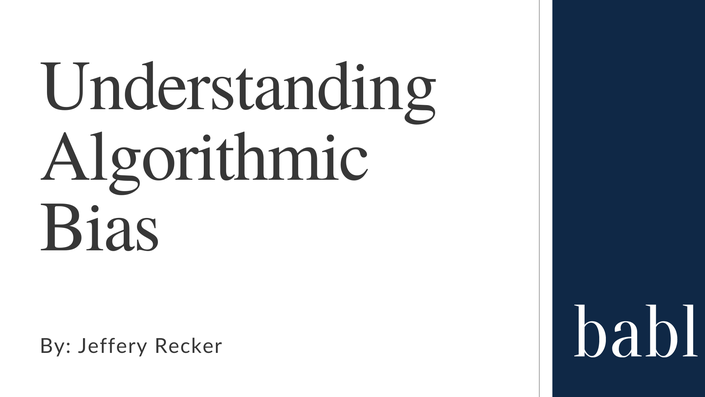Course Overview
This Introduction to Responsible AI course offers a comprehensive guide to understanding the importance of Responsible AI and strategies for implementing ethical AI practices. In this course you will explore the foundational principles of responsible AI, including fairness, accountability, transparency, and sustainability.
This course combines theoretical insights with practical applications, equipping you with the tools to identify and mitigate biases, ensure transparency, and adhere to legal frameworks like the EU AI Act. You will learn to assess the societal impact of AI and contribute to the development of ethical AI systems.
Whether you’re a student, professional, or policymaker, this course will empower you with the knowledge and skills to navigate the challenges of AI ethics and governance while shaping a responsible AI future.
Important Note: This course will go live on January 13th, 2025 with a live lecture recording.
What you will learn
This course is your gateway to understanding the essential principles and practices shaping the future of AI. Designed for anyone curious about the intersection of ethics, technology, and society, this course equips you with the tools to navigate and contribute to the rapidly evolving world of responsible AI.
Here’s what you can expect to learn:
-
Foundations of Responsible AI
We’ll start by unpacking the basics: What does it mean for AI to be “responsible,” and why does it matter? Explore the ethical principles of fairness, accountability, transparency, and ethics (FATE), and confront real-world challenges like bias, privacy concerns, and explainability. By the end of this module, you’ll have a strong foundation in the ethical landscape of AI. -
Bias and the Social Implications of AI
Dive deep into how bias infiltrates AI systems—whether through data, algorithms, or user behaviors. Learn to detect and mitigate bias, understand its societal impact, and explore the role of diverse datasets in building fair systems. We’ll also touch on the legal ramifications of bias in AI applications. -
Transparency and Explainability
Discover why transparency is crucial for building trust in AI. Understand the difference between explainability and interpretability, and get hands-on insights into tools and techniques that make AI systems more understandable to users, stakeholders, and regulators. -
AI Governance and Compliance
Explore the frameworks and regulations guiding responsible AI practices worldwide. From the EU AI Act to local policies like the Colorado AI Act, we’ll discuss how audits, certifications, and governance practices play a pivotal role in ensuring compliance and accountability. -
Building Trust with Responsible AI
Learn practical strategies for creating ethical AI systems, from ideation to deployment. This module focuses on methodologies and tools to assess and enhance ethical compliance throughout an AI system's lifecycle. -
The Future of Responsible AI
Take a forward-looking view at the emerging trends shaping responsible AI, from generative AI to autonomous systems and global regulations. We’ll also discuss career opportunities in this field and wrap up with an interactive case study and a live Q&A session.
Through interactive quizzes, real-world examples, and practical case studies, this course is designed to help you not only understand but also actively engage with the principles and practices of responsible AI.
Let’s build a future of AI that is ethical, transparent, and fair—together!
Important Note: This course will go live on January 13th, 2025 with a live lecture recording.
About the Instructor
Jeffery Recker, Co-Founder and Chief Operating Officer of BABL AI, has a background in social and environment sustainability and is a certified AI Auditor with years of experience in AI Auditing and Responsible AI Consulting.
In the course "Understanding Algorithmic Bias," he leverages his years of hands on expertise to teach students how to identify, analyze, and mitigate the wide varieties of biases in AI systems.
His leadership and real-world experience ensure that students gain practical skills and knowledge to develop ethical and unbiased AI solutions.
Course Curriculum
Other course
Check out other online courses and certifications from BABL AI.





